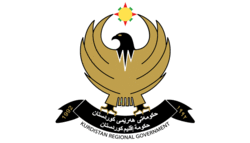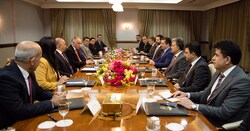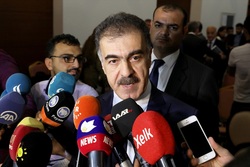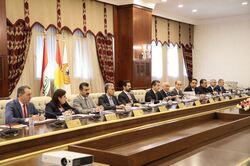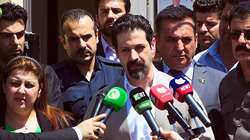Kurdish-Iraqi negotiations to be resumed in Baghdad
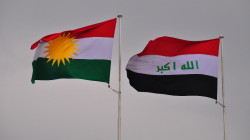
The Kurdish delegation headed by Vice President of the Kurdistan Regional Government (KRG), Qubad Talabani, arrived in Baghdad to resume negotiations with the federal government.
According to Shafaq News Agency correspondent, the Kurdish delegation will meet with the Presidency of the Iraqi Parliament in the presence of the heads of the parliamentary blocs and the Parliamentary Finance and Legal Committees to discuss the Region’s share of the 2021 federal budget and the salaries crisis of the employees.
Under the constitution, the Kurdish region is entitled to a share of the Iraqi national budget. But that arrangement collapsed in 2014, when Iraq’s army fled the north in the face of an advance by ISIS.
The Kurds seized control of Iraq’s main northern oil fields at Kirkuk from ISIS and began selling Kirkuk’s oil independently; Baghdad stopped sending money to the Kurds.
In 2017, after ISIS was driven out of the north, the Kurds held an independence referendum, voting overwhelmingly to secede. But the central government responded by swiftly launching a military offensive and recapturing control of Kirkuk, which quashed the Kurdish independence bid.
The central government and the Kurds have yet to agree on a full plan to resume payments from Baghdad to the Kurdish region.
The 2018 budget, passed in parliament despite a boycott by Kurdish lawmakers, calls for the 17 percent of total revenue allocated to the Kurds to be cut in line with the region’s share of Iraq’s population, which is disputed.
In 2020, the governments of Iraq and Kurdistan have reached an agreement on Erbil’s contribution to the federal budget.
The deal includes a transfer of 250,000 barrels per day (bpd) from the oil-producing region to Iraq’s national budget in exchange of securing the financial dues of the region.
However, Kurdistan said that the federal government did not keep their promise of sending the all financial duties to the region.
The KRG was forced to cut public workers’ salaries for several months as the region grapples with an economic crisis brought to a head by plummeting oil prices.

